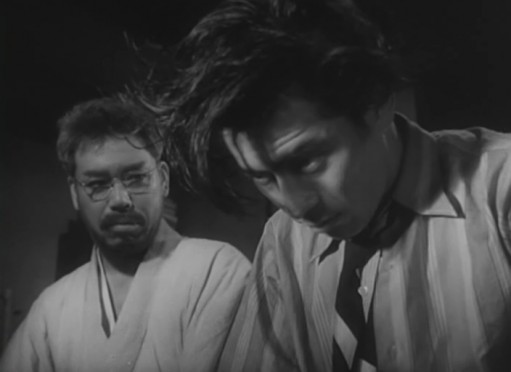Year: 2006
Type: Science fiction
Subtype: Shining dystopia on a hill, with monster gods and androids on the verge of self-awareness.
Primary audience: People who think it’s quite okay that many things sound like Coldplay now.
Tics: Hey look how much I remember from philosophy class!
Worth watching: Yes.
The earth is formless and void, except for a great domed city run along the principle of “life is hard, let’s go shopping!” Outside there’s only the wind and the cold, dead rock. Inside there is dull perfection. Androids do all the work, a junta all the thinking. A secret race of monsters do something as well, but it’s not quite clear what. A bit of murdering, a bit of mystery. A bit of bringing the story outside the dome, where madmen and even more monsters hide in ruined neighbor cities.
There ought to be a law against filling your stories with philosophical references and hints of metaphysical relevance. Or maybe a fine. It’s the old The Prisoner sickness, where the ambitions of the Magnificent Creator spin out of control, towards a like-a-significant ending about existence and narrative etc.
But that’s only the end. The feet of this series stay mostly close to the ground. I like the characters, the mood, the visuals, the music. I even liked the nonsensical standalone episode that spoofs Walt Disney. Balanced against all that, pompousness is a price worth paying.






